I’m continuing to share my Road Trip in Portugal: Lisbon. This is the final post in this travel series about my visit to Portugal.
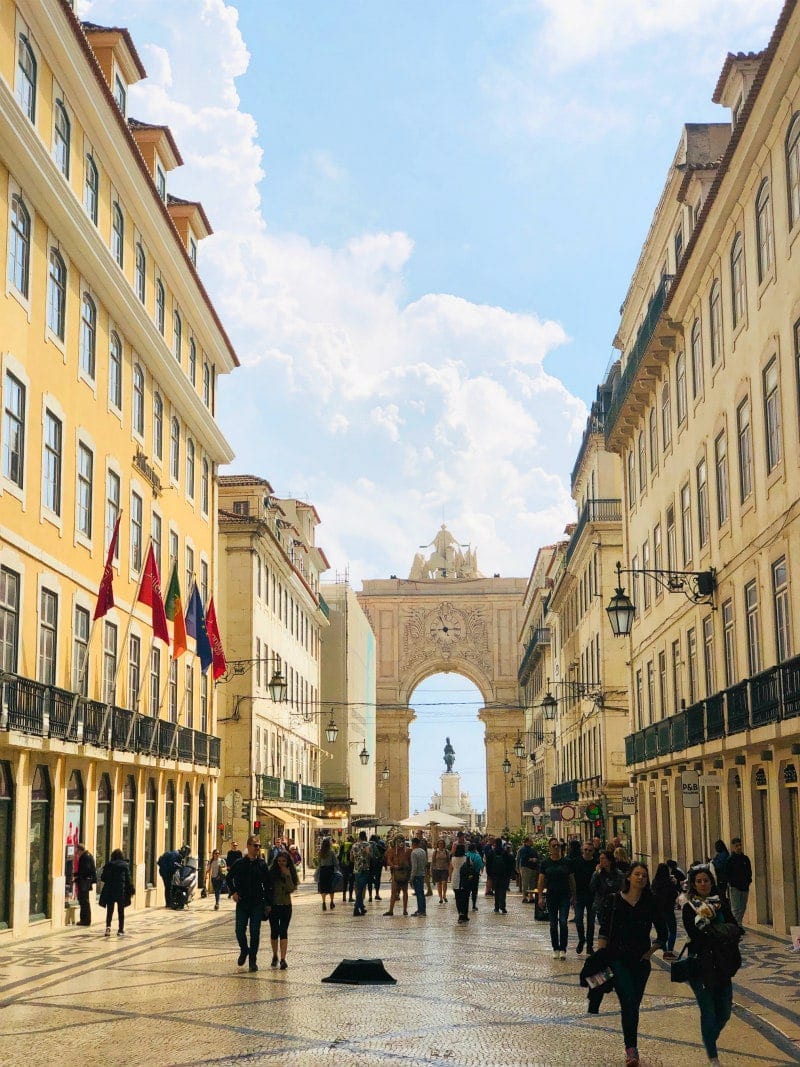
I hope you’ve been enjoying my write-ups about my adventures in Portugal– it’s so fun to explore new places, and Portugal is definitely a country to put on your travel bucket list!

My cousins and sister and I traveled to Portugal at the very end of March. It was a good time of year to do so– very few tourists were in most of the places we visited, and the weather was perfect. Many of the photos shared here were taken either by my cousin Paula, who shares her travel experiences on her Instagram account: Sweet Spot Travels or by my sister Susie, who writes a book review blog at NovelVisits.com.
We began our journey in Lisbon, rented a car, and then we drove immediately to Óbidos and Aveiro. We continued on to the larger city of Porto and toured the smaller town of Braga. Then we made stops in the small towns of Lamego, Guarda and Sortelha. These three places were all visited in one day on our road trip. They weren’t a final destination for lodging for us. Our next stop was the mountain village of Monsanto, where we did stay the night. My cousin’s husband helped create our itinerary by researching all of the regions of Portugal. That’s how we discovered these smaller towns that were all worth visiting while on a road trip! We moved on to see Castelejo, Piódão and Coimbra. And our final stop was in Lisbon for a three-night stay.
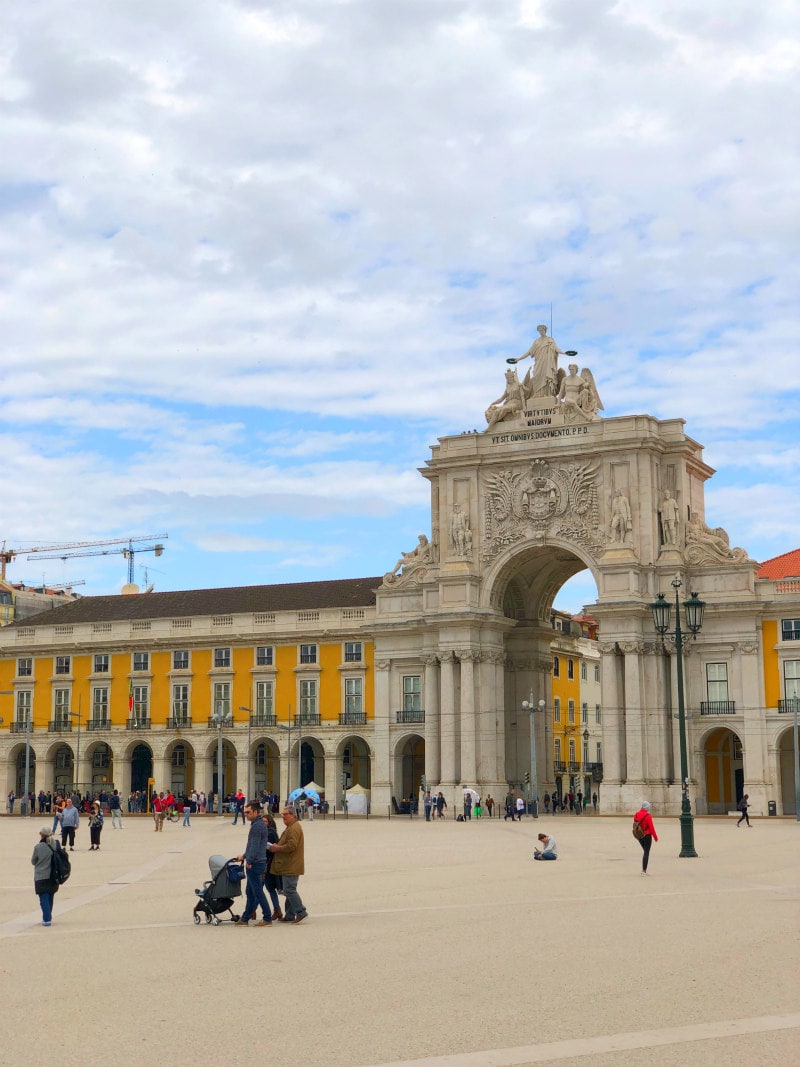
About Lisbon:
Portugal’s capital, Lisbon is a hilly city with a castle at the top! The 1755 Lisbon earthquake, also known as the Great Lisbon earthquake (along with subsequent fires and a tsunami), almost totally destroyed Lisbon and adjoining areas. Seismologists today estimate the Lisbon earthquake had a magnitude in the range 8.5–9.0. Estimates place the death toll in Lisbon alone between 10,000 and 100,000 people, making it one of the deadliest earthquakes in history. Lisbon has since been restored, and now it’s a booming city and a culturally rich, beautiful place to explore.
Recommended: Read this blog post >> 5 of the Coolest Neighborhoods in Lisbon, Portugal (it will give you a good idea of the layout of the city and what to look for where).
Terreiro do Paço
Terreiro do Paço or “the palace’s square,” is where the royal palace stood for over two centuries until 1755, when its was destroyed by the Great Earthquake. Many restaurants and outdoor vendors line the square. The city’s main tourism office is located on the west side the square. Here, visitors can request information about the city. This is where we purchased a 3-day Lisbon card, which included free local transportation on buses, metros and trams as well as entry to various museums and discounts on other things. If you plan to travel to Sintra as part of your visit to Lisbon, this pass includes a free train ride to Sintra.
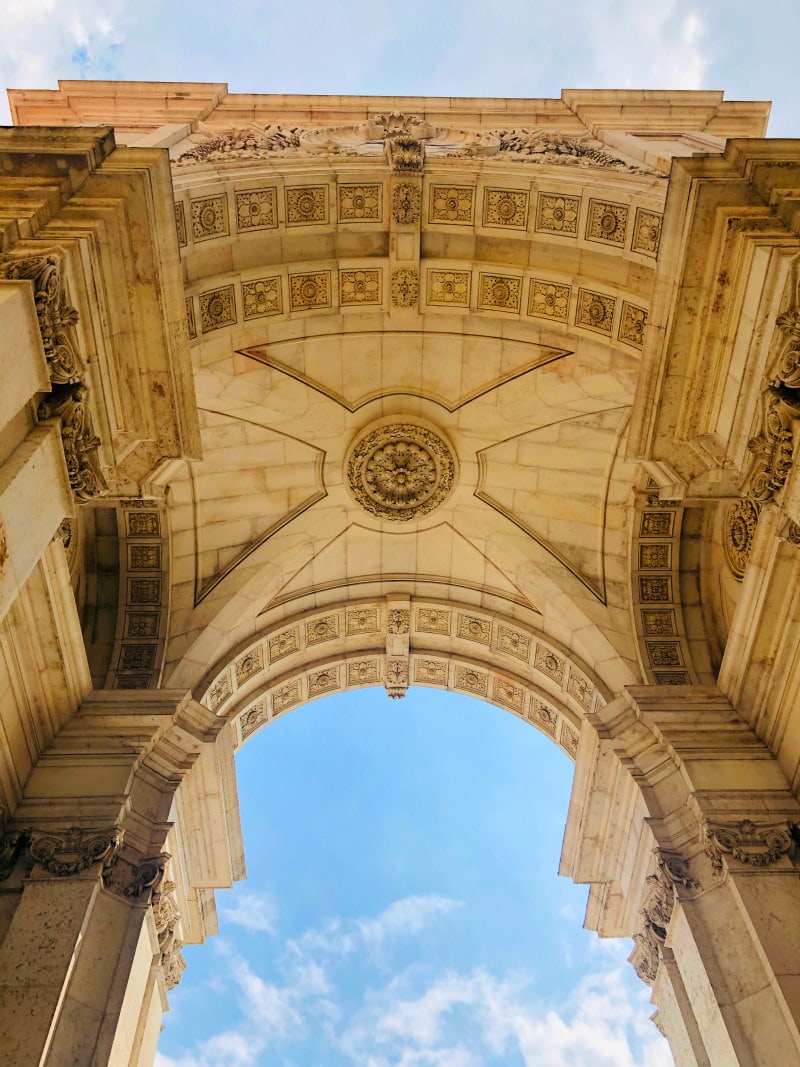
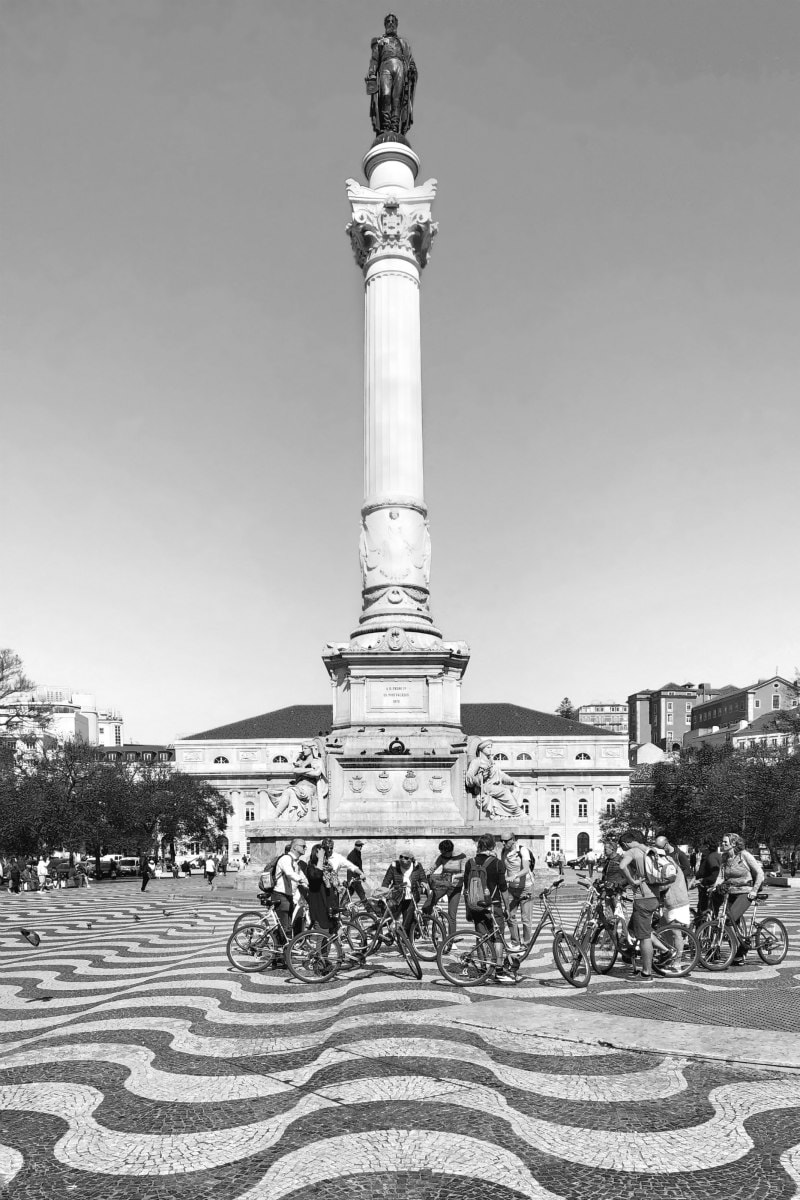
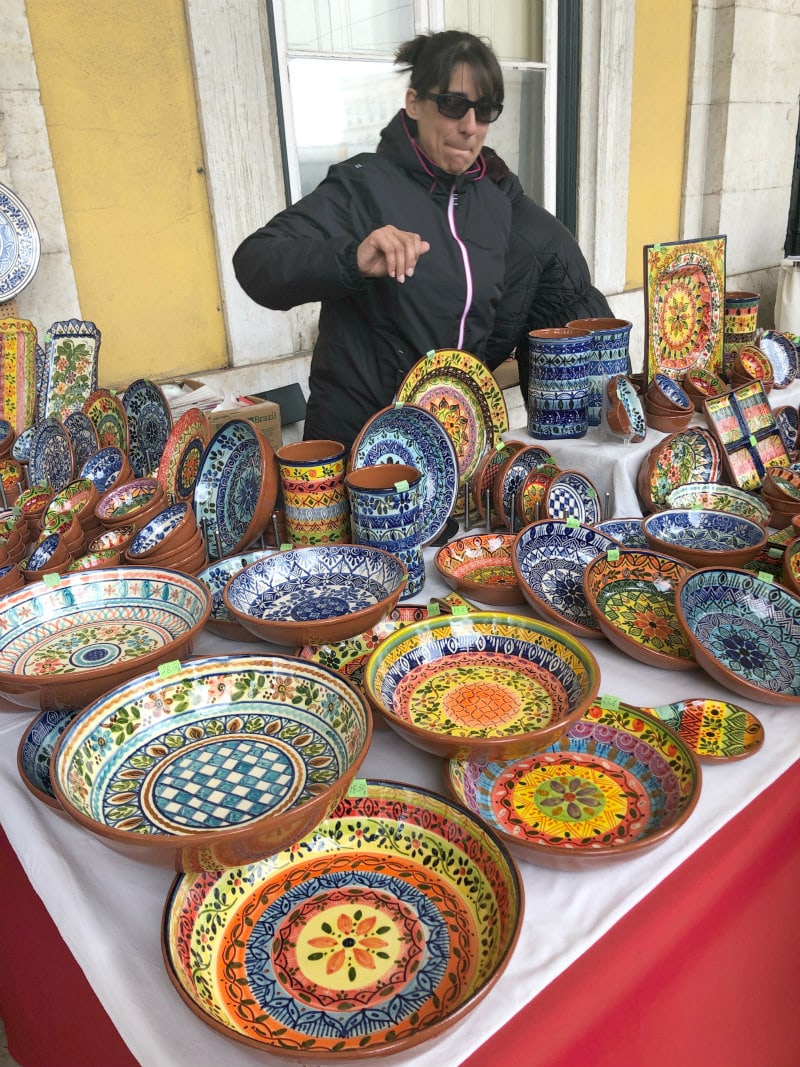
We stayed near this palace square area in a great Airbnb. It was a good location- close walking to almost everything.
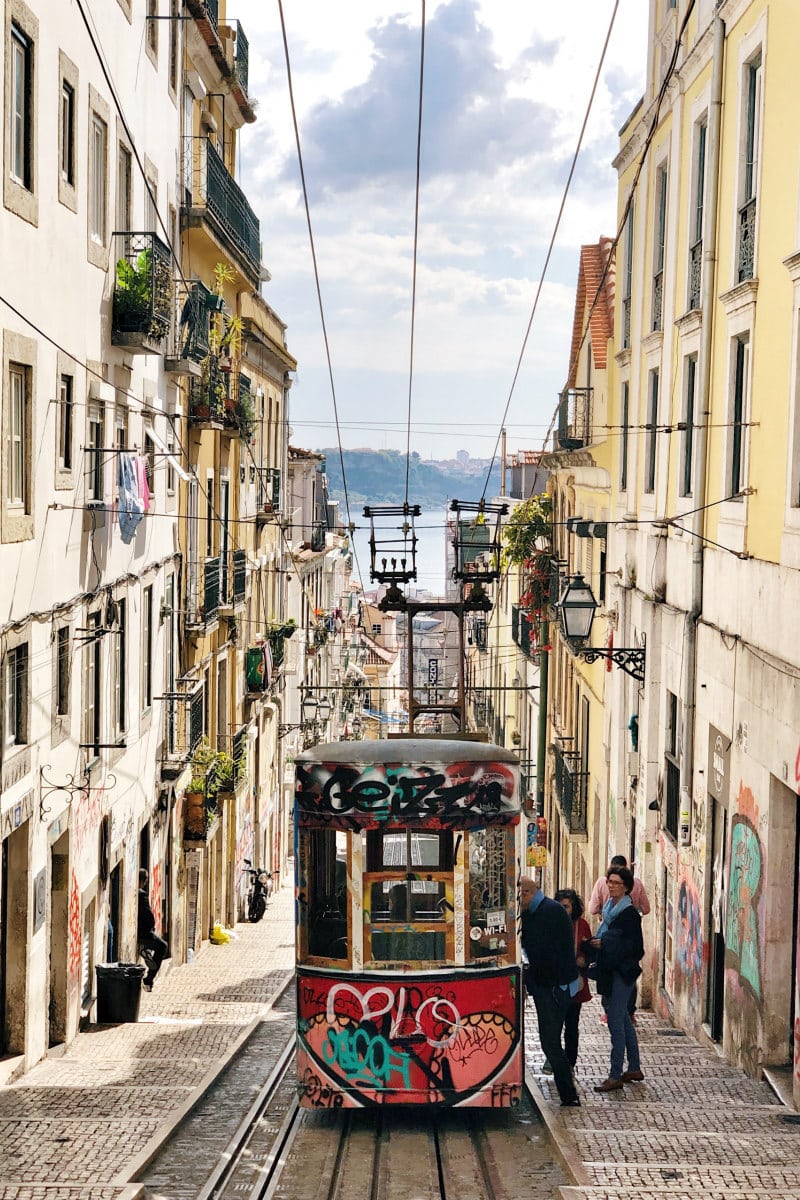
Lisbon is another one of Portugal’s hilly cities. We walked everywhere, and we got a lot of exercise because of the hills! These little trams were great to hop on/off to travel around the city. They move slowly in kind of a creaky way, but they maneuver the hills and narrow streets perfectly!
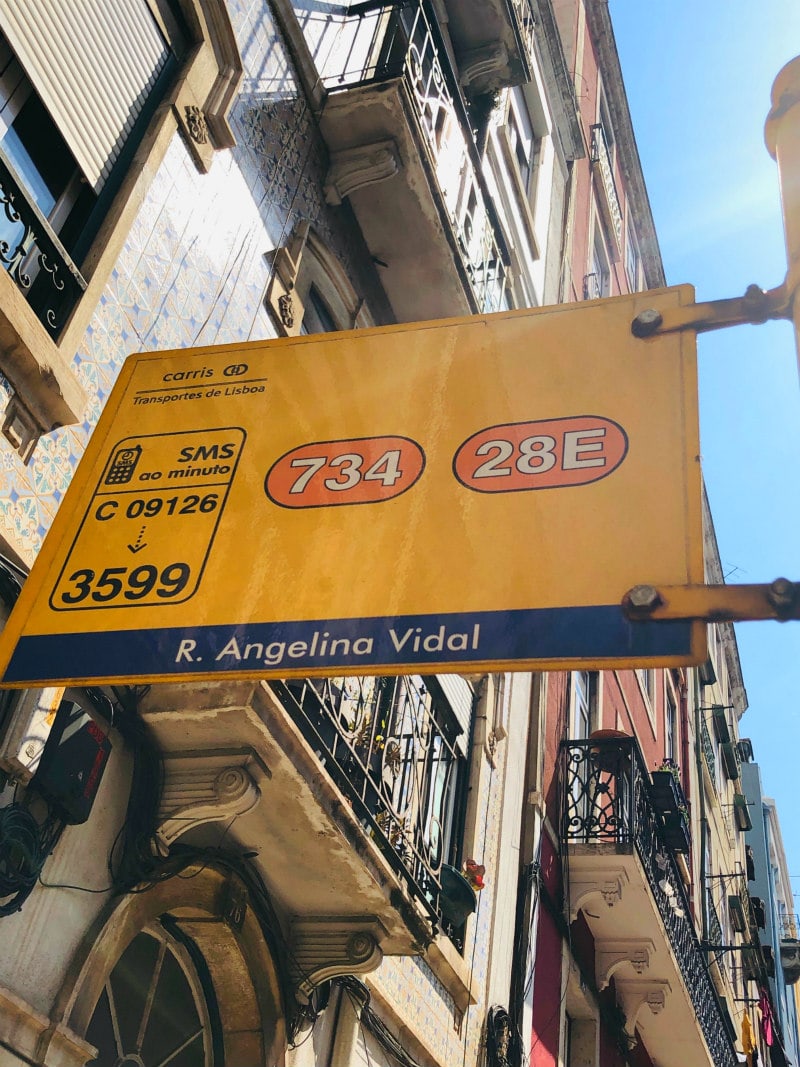
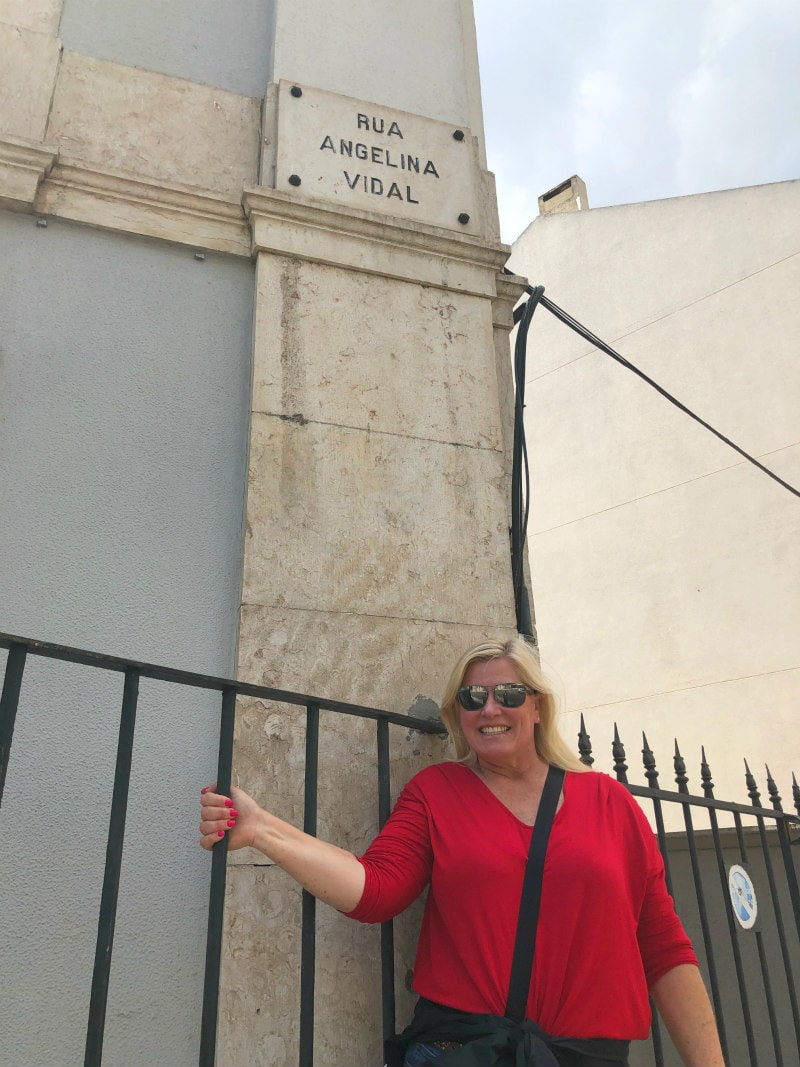
If you’ve been following along on all of my Portugal posts then you’ll know that one of the reasons we were visiting Portugal was explore some of our family roots. It turns out that our Great Great Grandmother Angelina Vidal was very well known in Lisbon. She was a women’s activist and poet. There is a street in Lisbon named after her, as well as a tram stop! Of course, we had to take a picture!
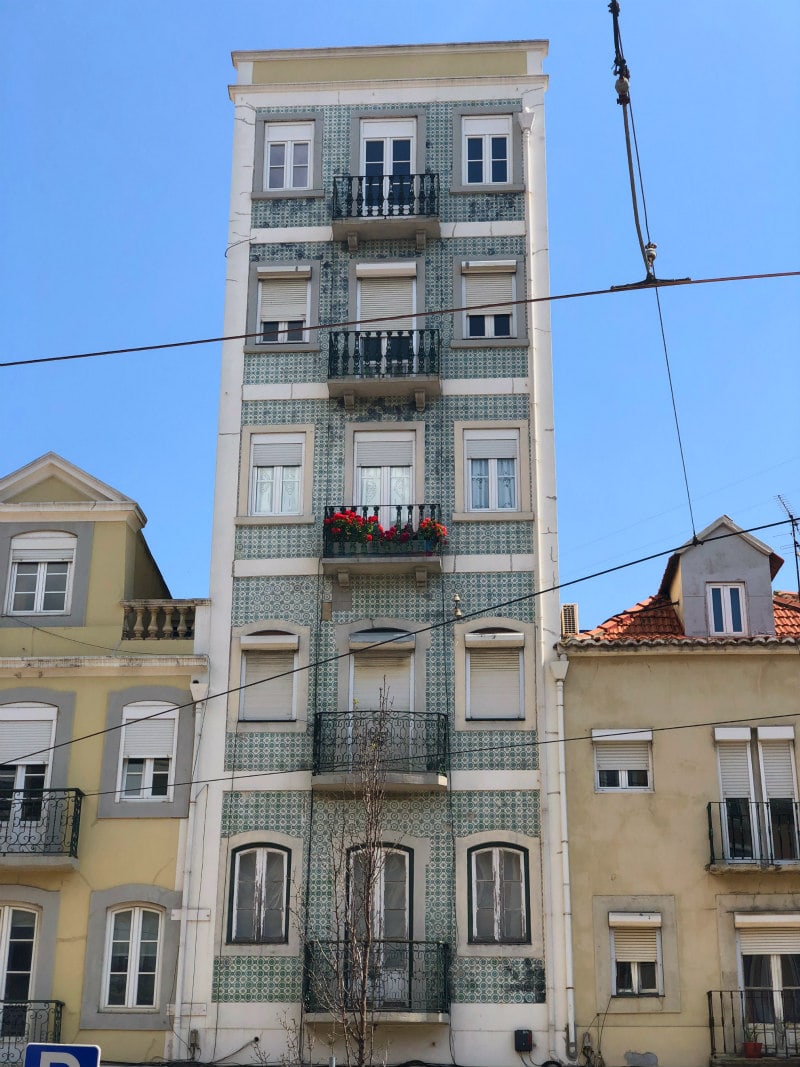
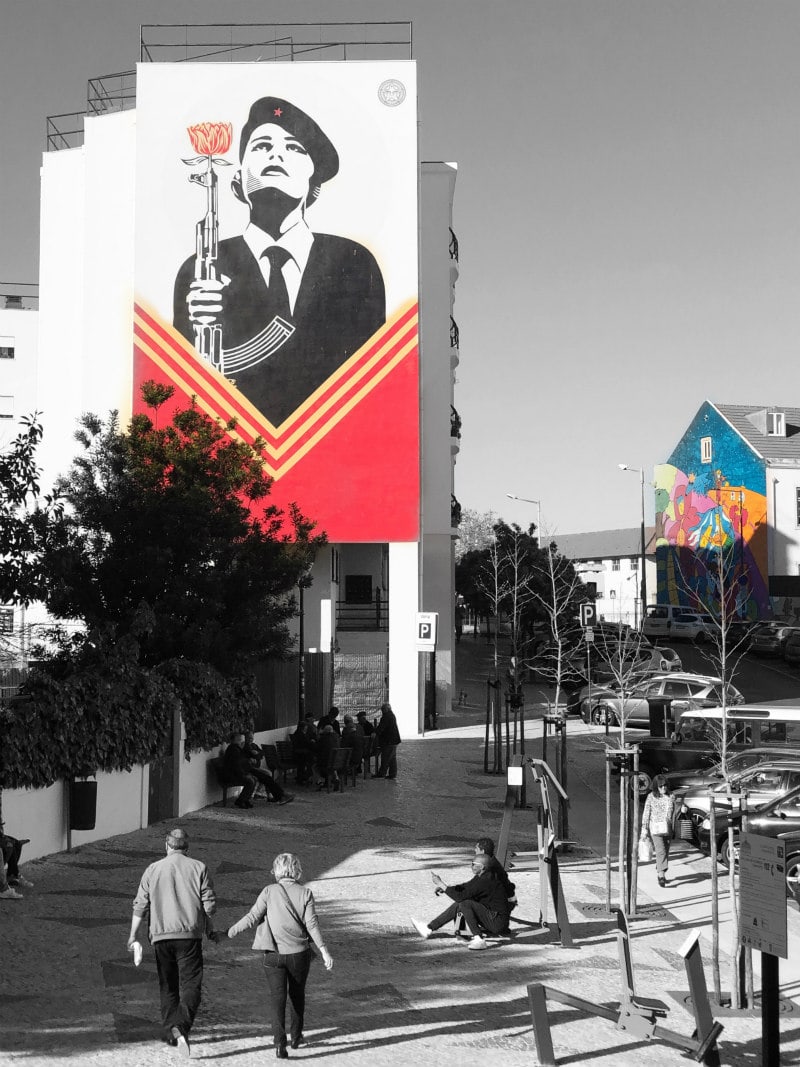
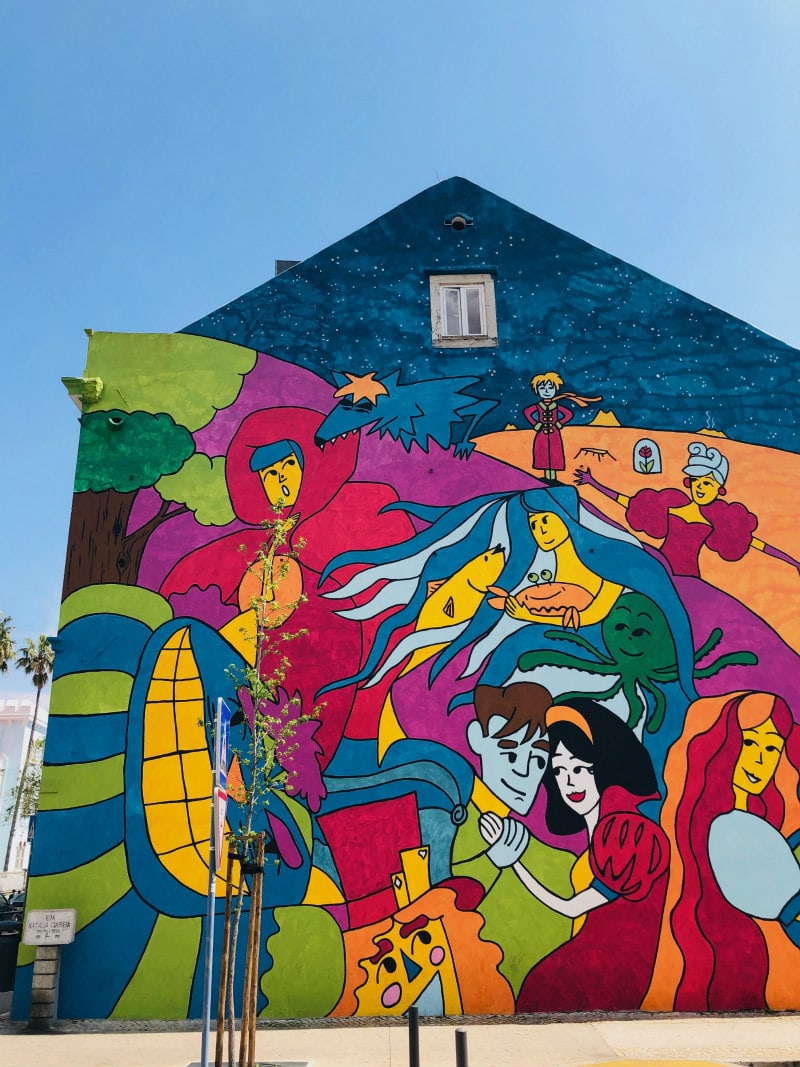
The neighborhoods are just fun to walk around in. Beautiful tiled buildings, murals, shops, historical sites.
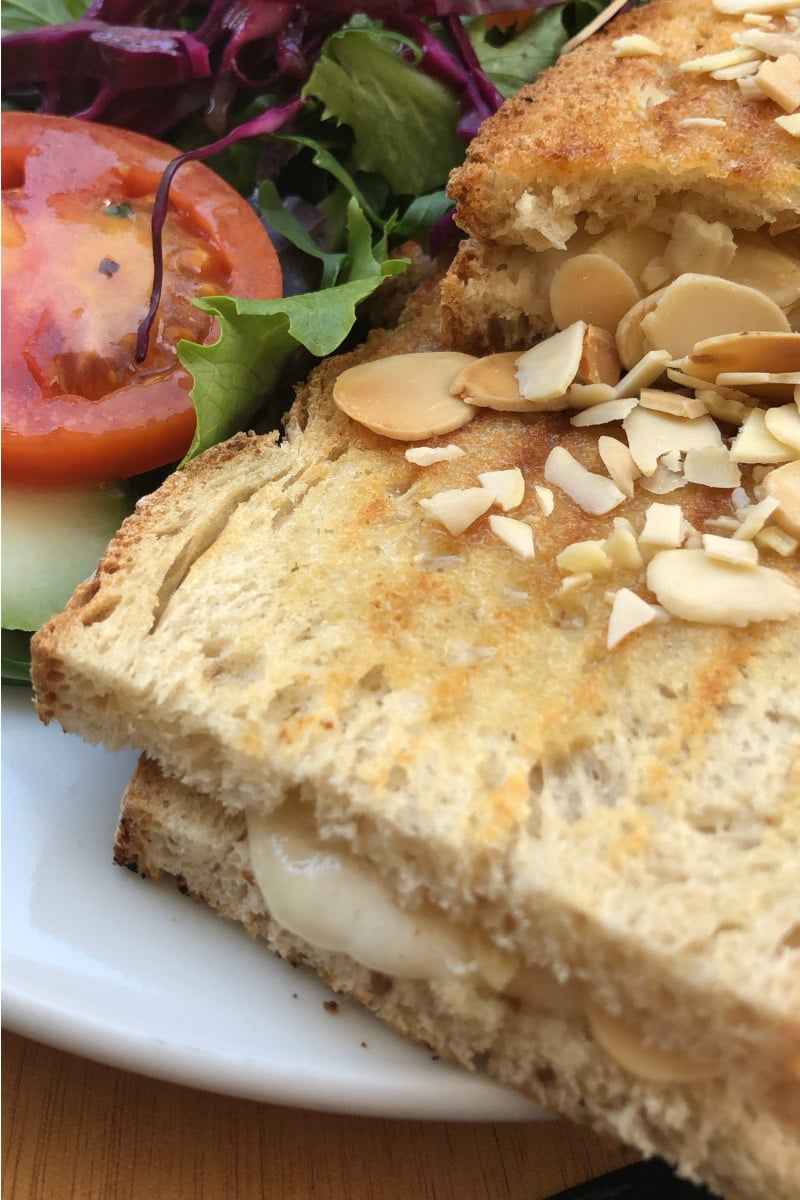
We stopped for lunch and grabbed a Brie and Honey-Almond Grilled Cheese. The guy next to us was eating the most amazing looking Prosciutto and Melon. I recommend this place: Marcelino Pão & Vinho. We also ate at Tapas & Friends a couple of times (very good!) and Canto da Vila Bistro.
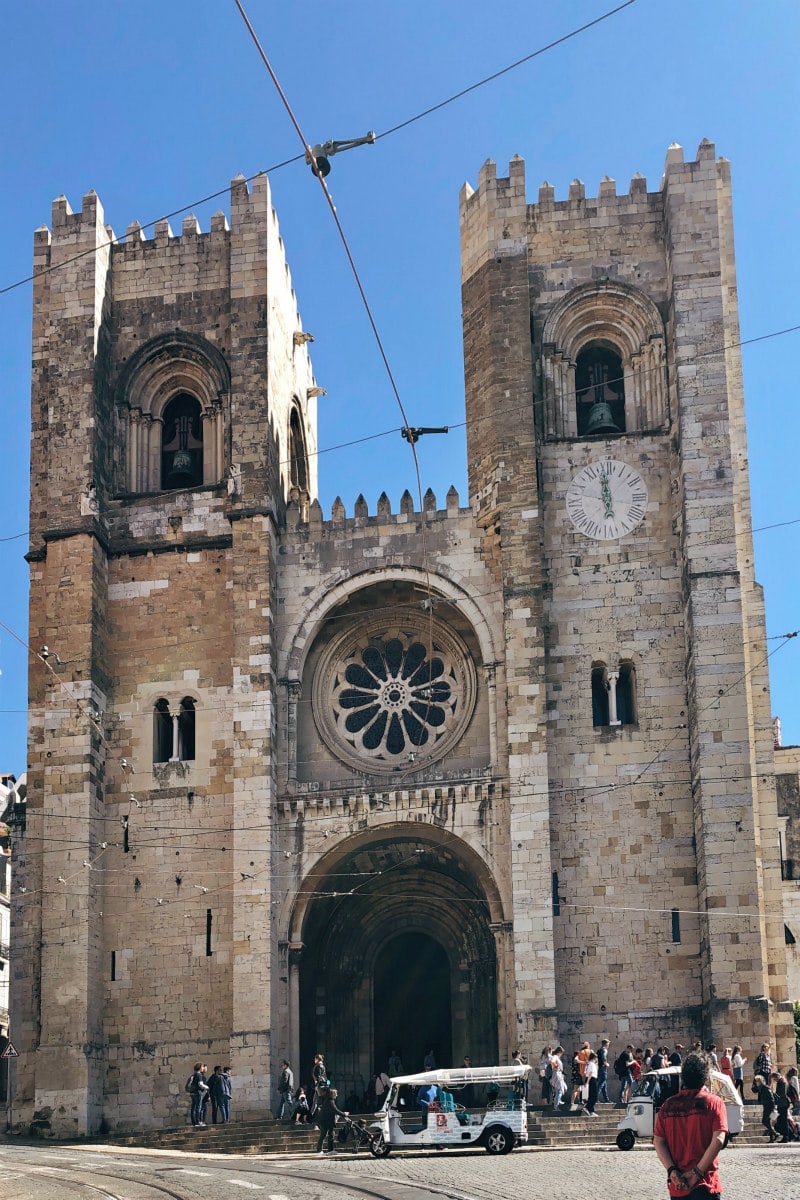
This is Se Cathedral, Lisbon’s most important and iconic religious building. There is no admission to the main cathedral, so be sure to visit this one!
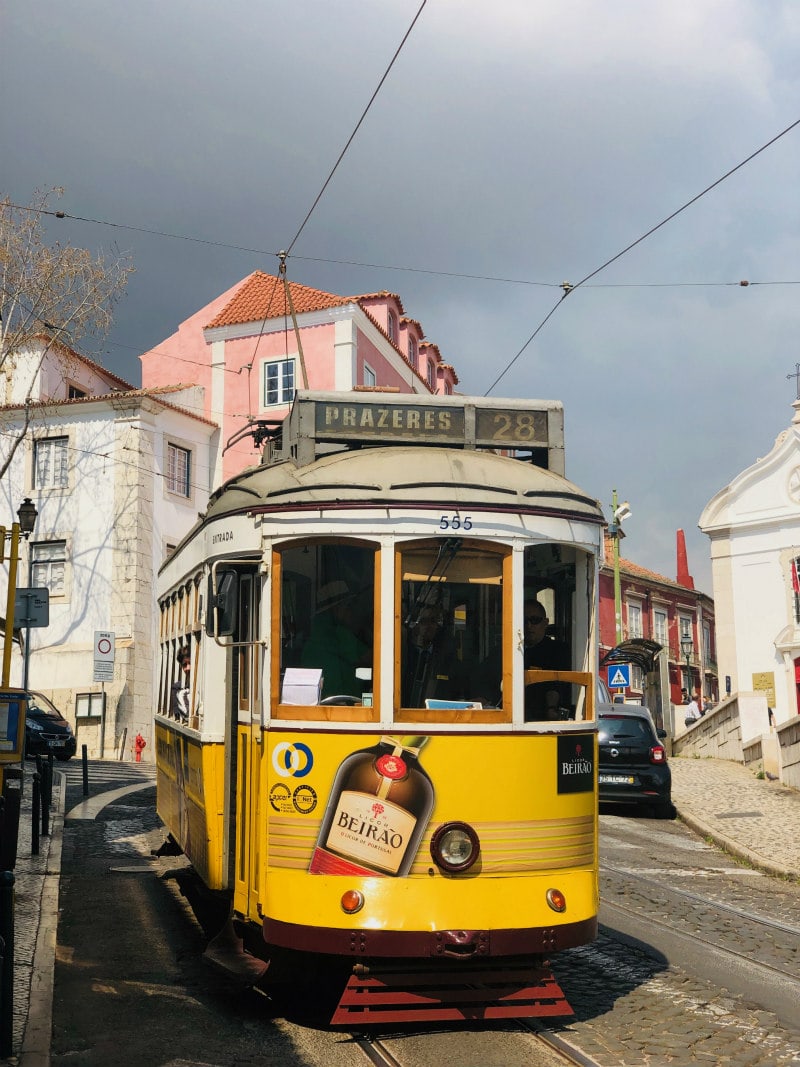
The yellow tram (route 28) passes directly in front of the cathedral, so I recommend hopping on that to get off in this area.
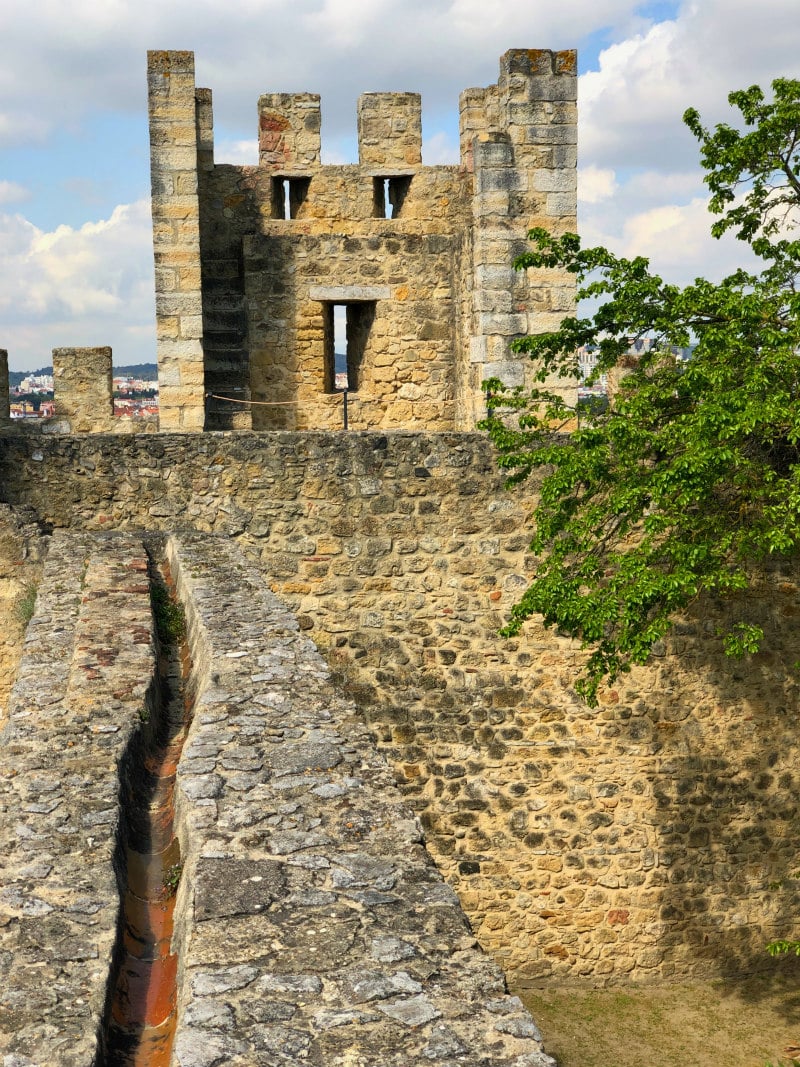
São Jorge Castle
One of the places you must visit is the São Jorge Castle. As most castles do, it sits at the top of a hill overlooking the center of Lisbon. You’ll be visiting the remains of the castle and the royal palace. According to remains that have been found, human occupation of the castle dates back to at least the 8th century BC. It was first used as a defensive outpost by various groups (Celtic tribes, Phoenicians, Greeks, Carthaginians, Romans, the Suebi, the Visigoths, and the Moors). It was also a Royal Palace and military barracks. And now it’s a national monument. Buy tickets ahead of your visit. Here’s a peek at some of the sights you’ll see on your visit to the castle.
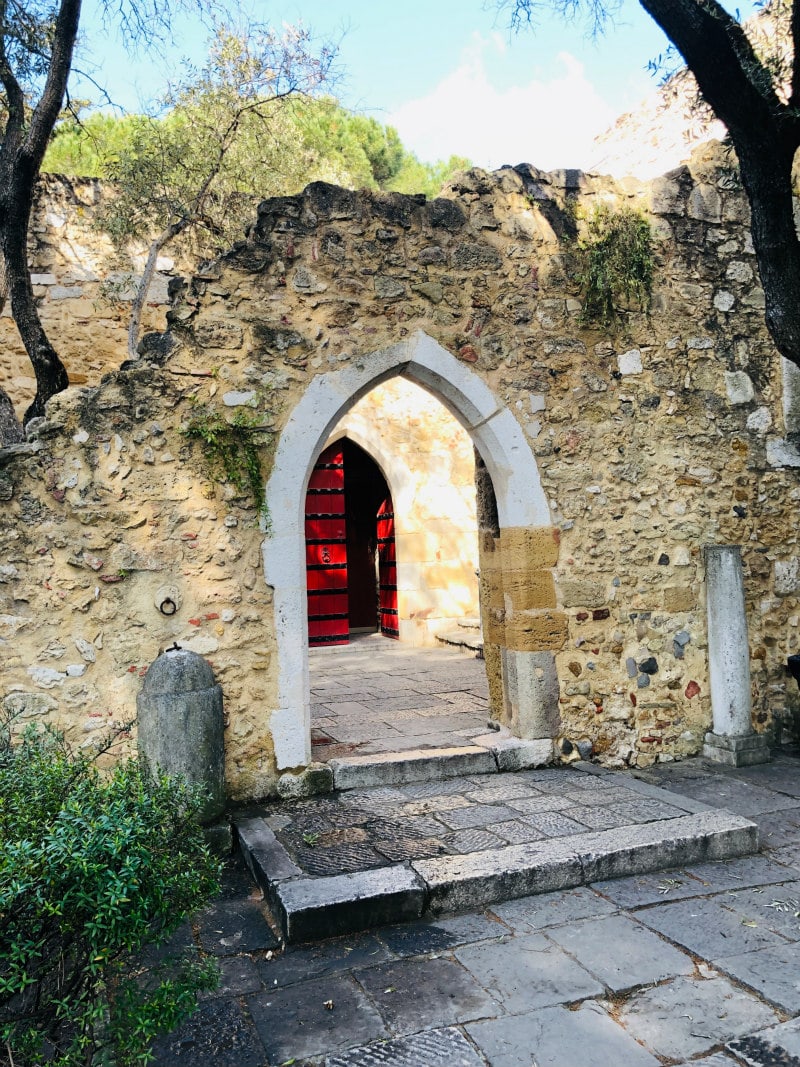

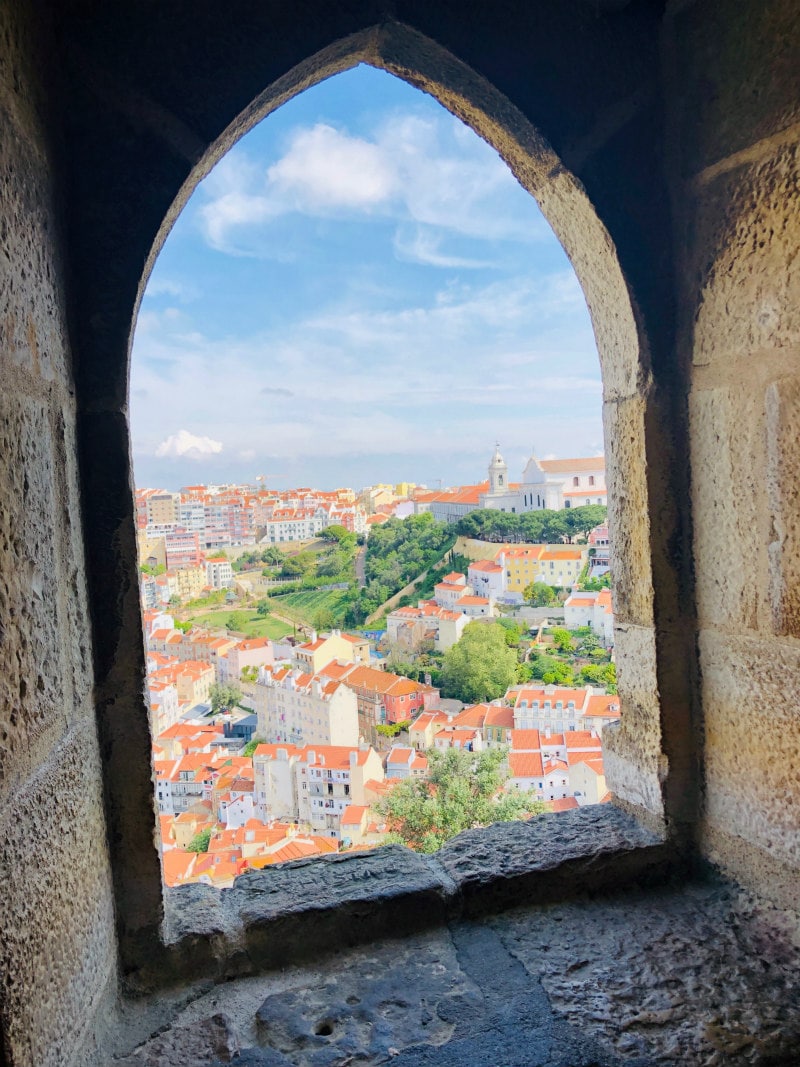
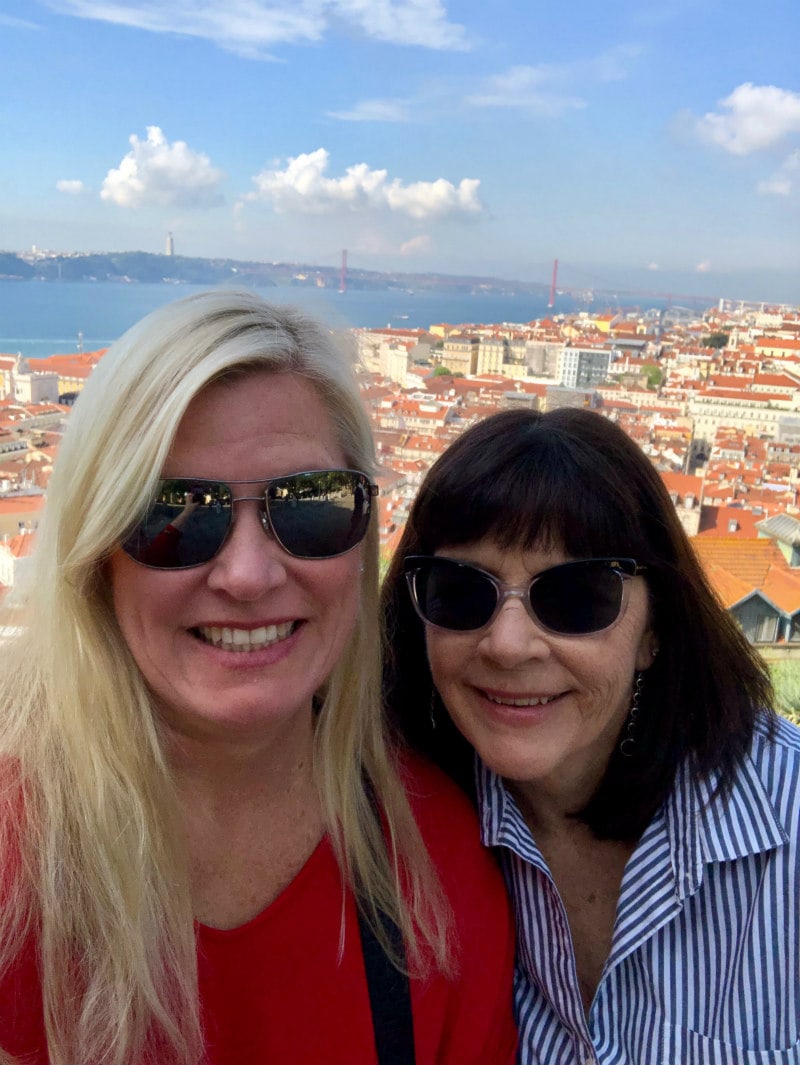
My sister Susie and me!
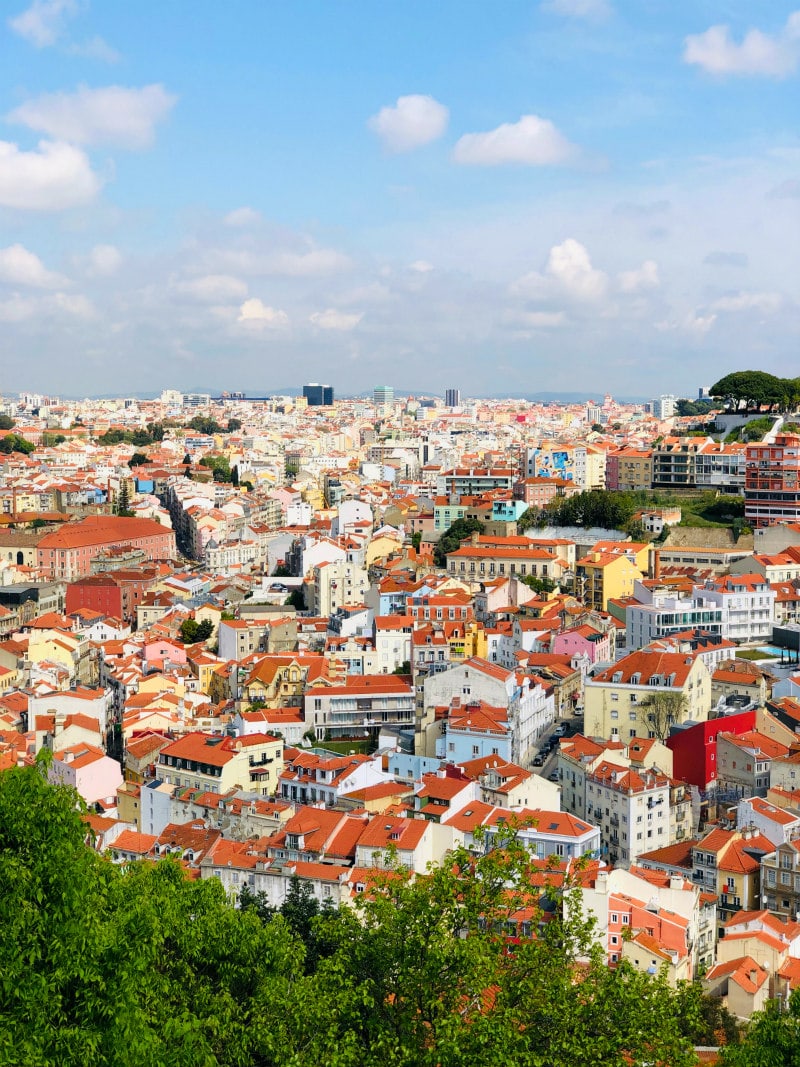
And since the castle sits above the city, this is one of the views you get to take in.
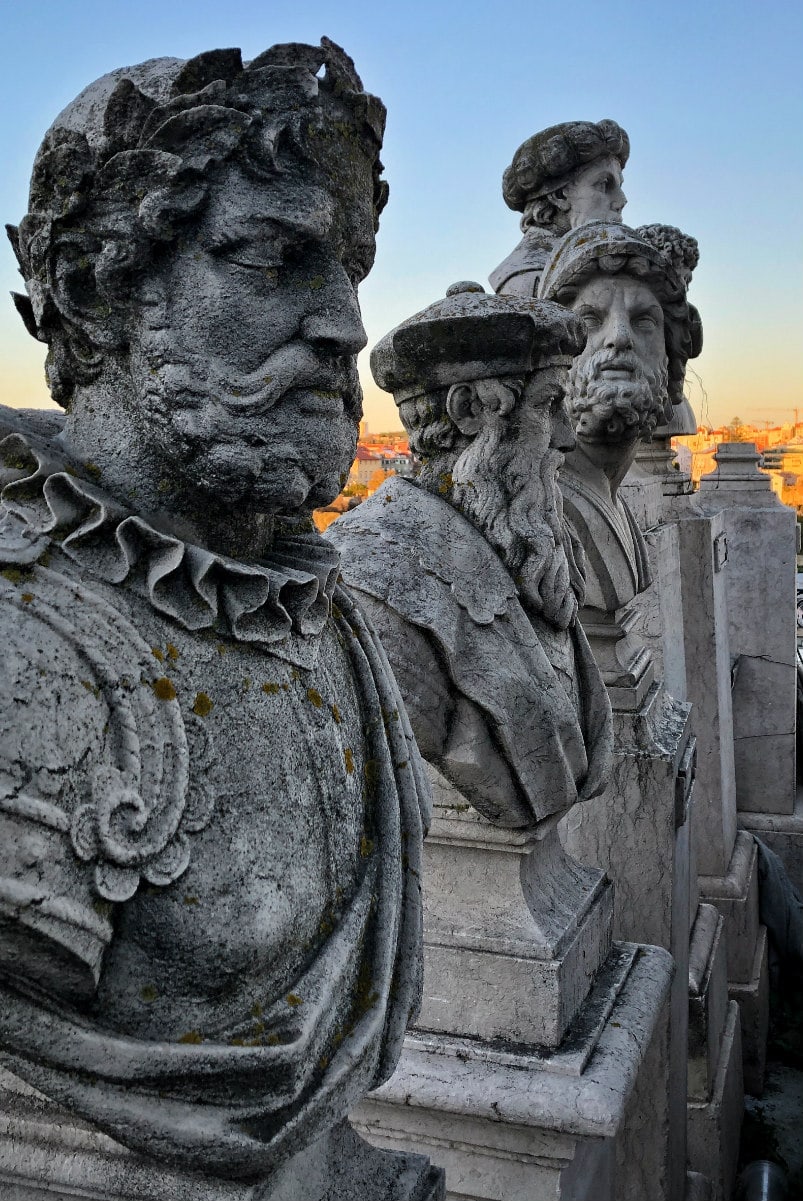
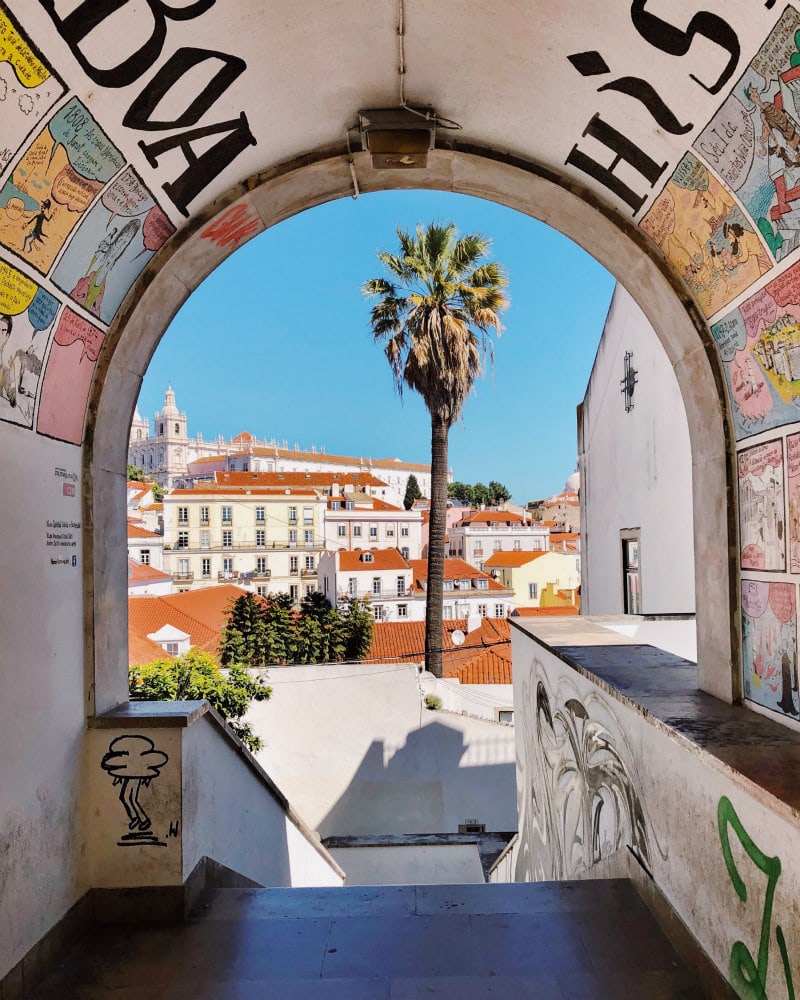
Just a few more sights to see as you walk around Lisbon.
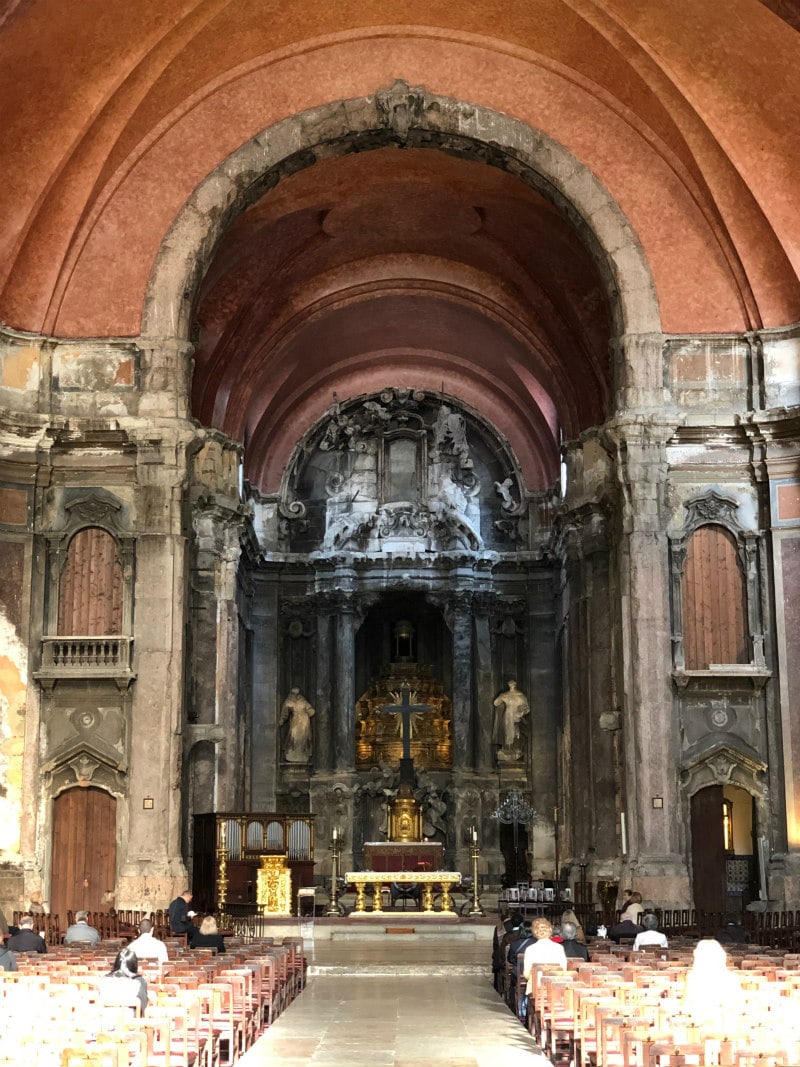
Igreja de São Domingos
Igreja de São Domingos is another church that is a national monument in Lisbon. Established in 1241, it was the largest church in Lisbon and typically hosted royal Portuguese weddings. The church was damaged by the 1531 Lisbon earthquake and almost completely destroyed in the 1755 earthquake. In 1959, there was a large fire, and that fire almost completely gutted the church. It didn’t open again until 1994. In the restoration, they decided to leave a lot of the burned inside of the church intact. It’s worth a look– quite eery, in fact, to see a church that’s all burned-out inside!
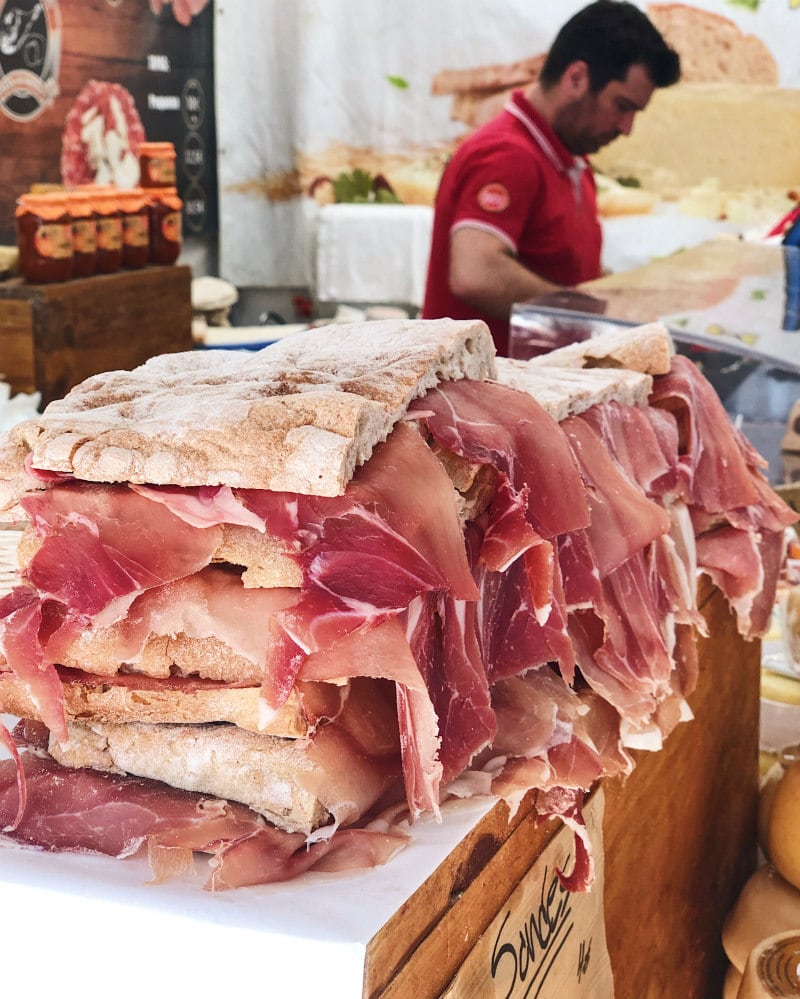
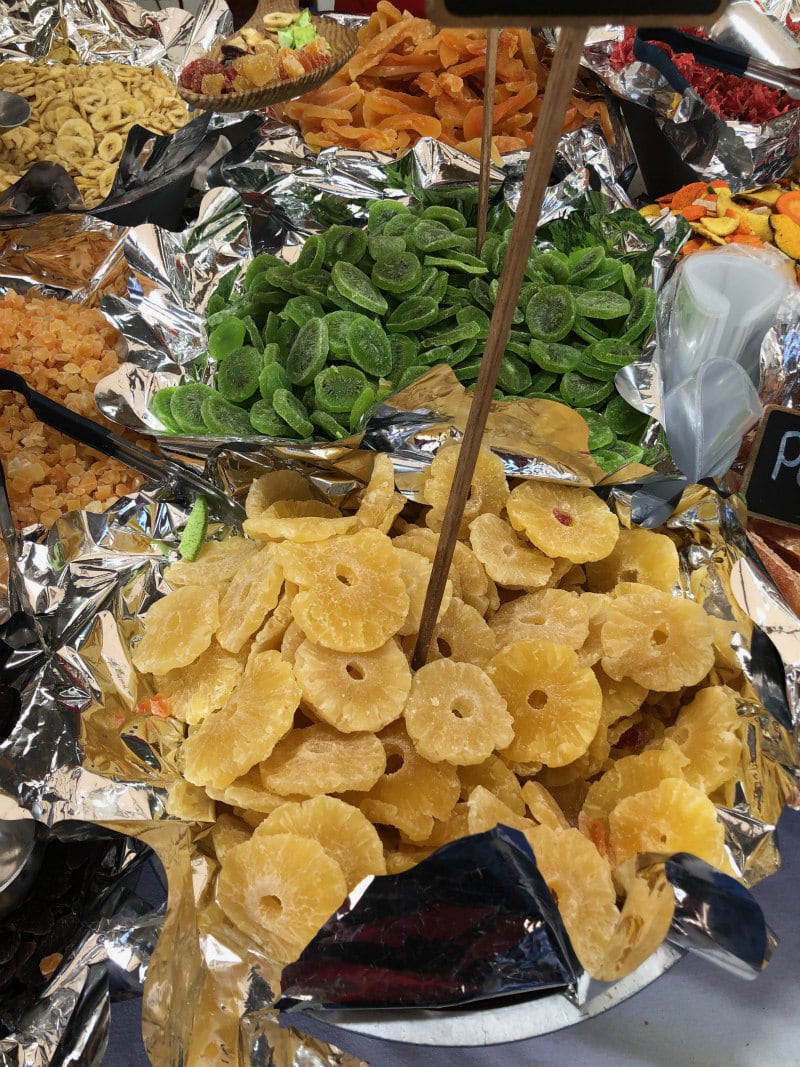
In the same area as the church, we found a cute outdoor market with a ton of food choices, barrels of sangria, jewelry and crafts.
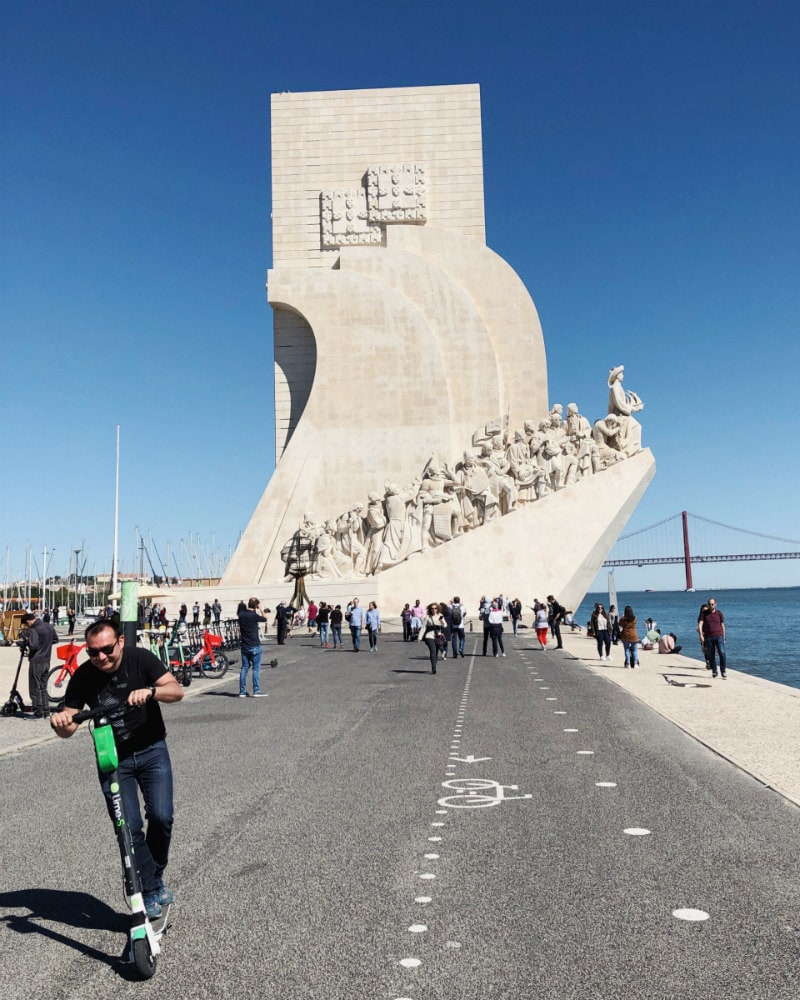
One of the must-do activities while visiting Lisbon is to take the train to Belem. In Belem, you will find a beautiful waterfront area.
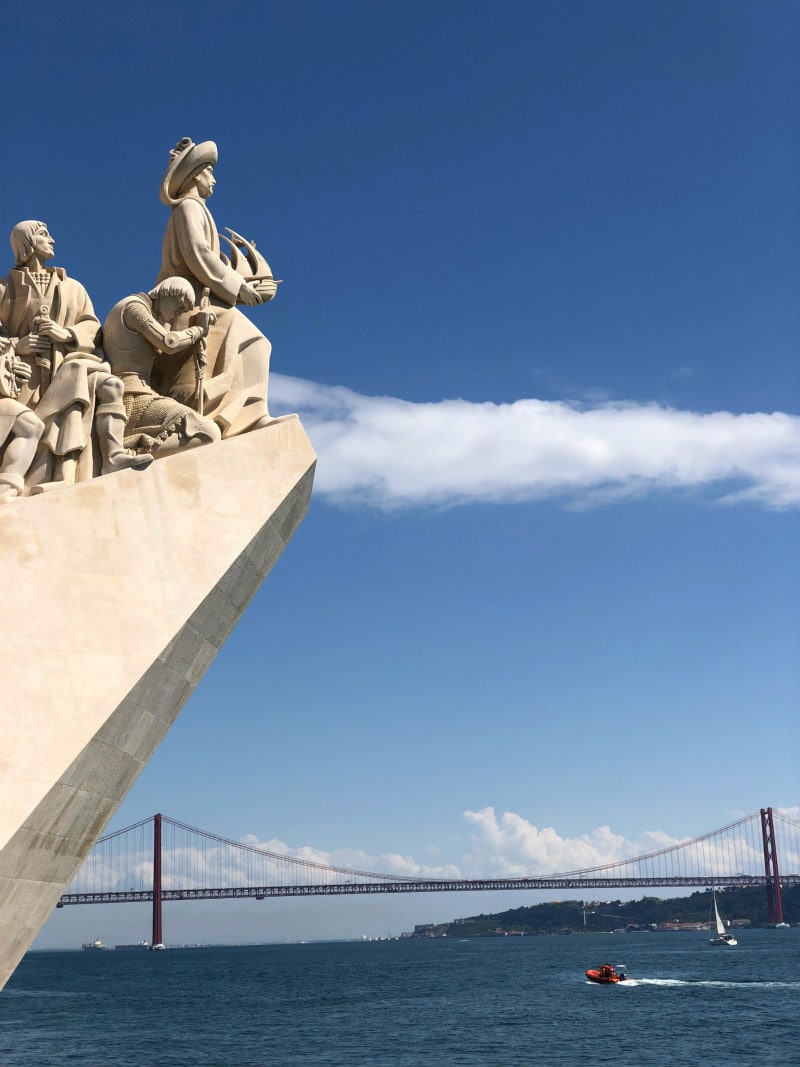
Check out Padrão dos Descobrimentos (Monument of the Discoveries) which celebrates the age of exploration in the 15th and 16th centuries.
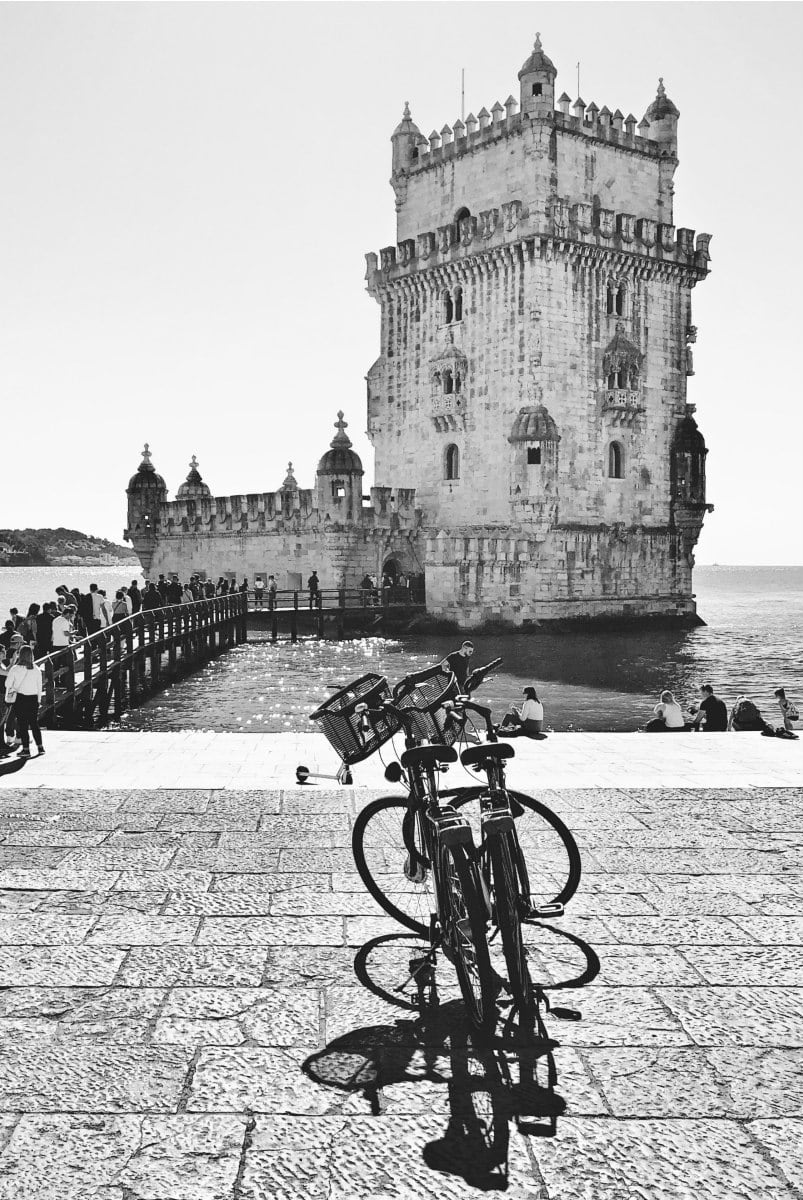
The Belém Tower, built in the 16th century as a fortress and ceremonial gateway to Lisbon, is just a short walk down the waterfront from the discovery statue.
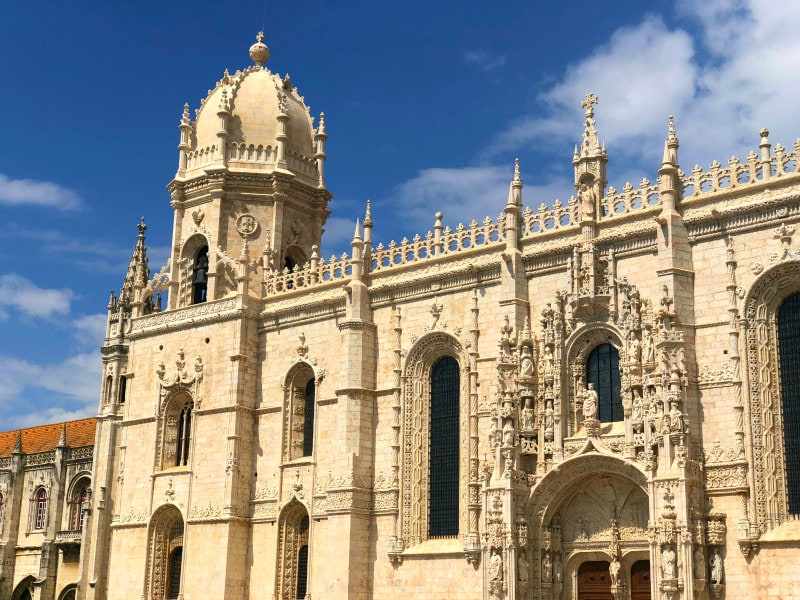
Jerónimos Monastery, built in the late 1400’s, is another site to see in Belém. It’s quite ornate and unique for a monastery. And it’s one of the most visited historical attractions in Lisbon.
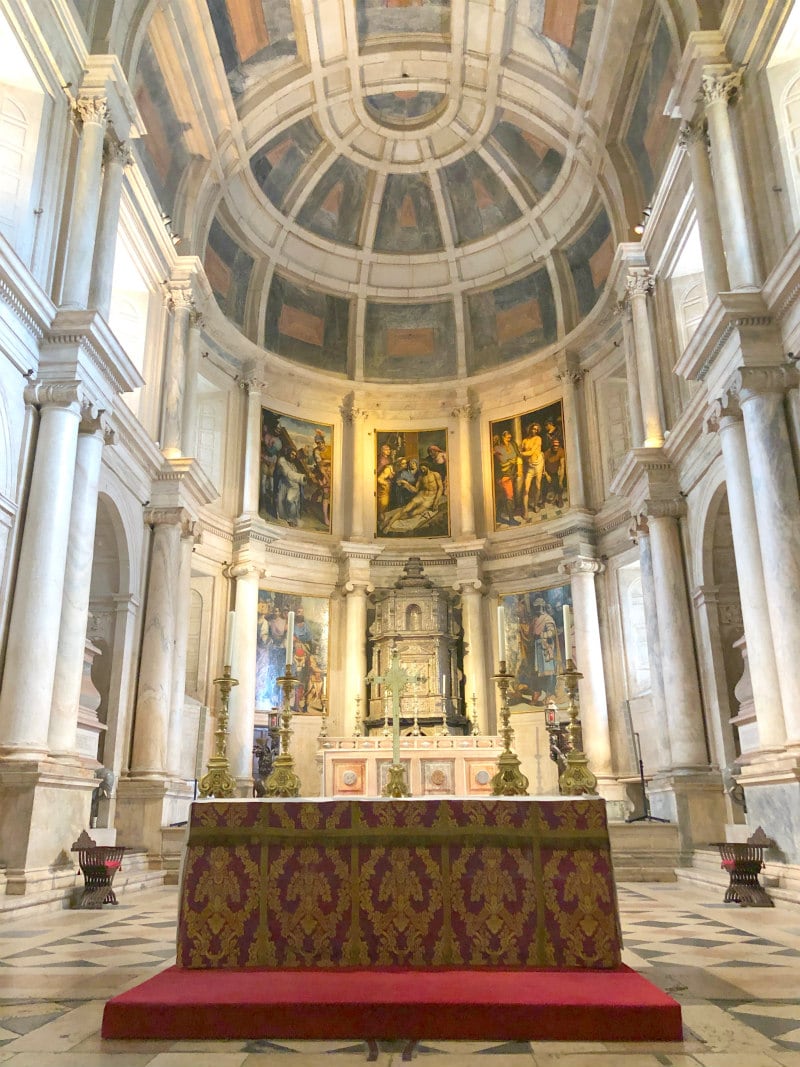
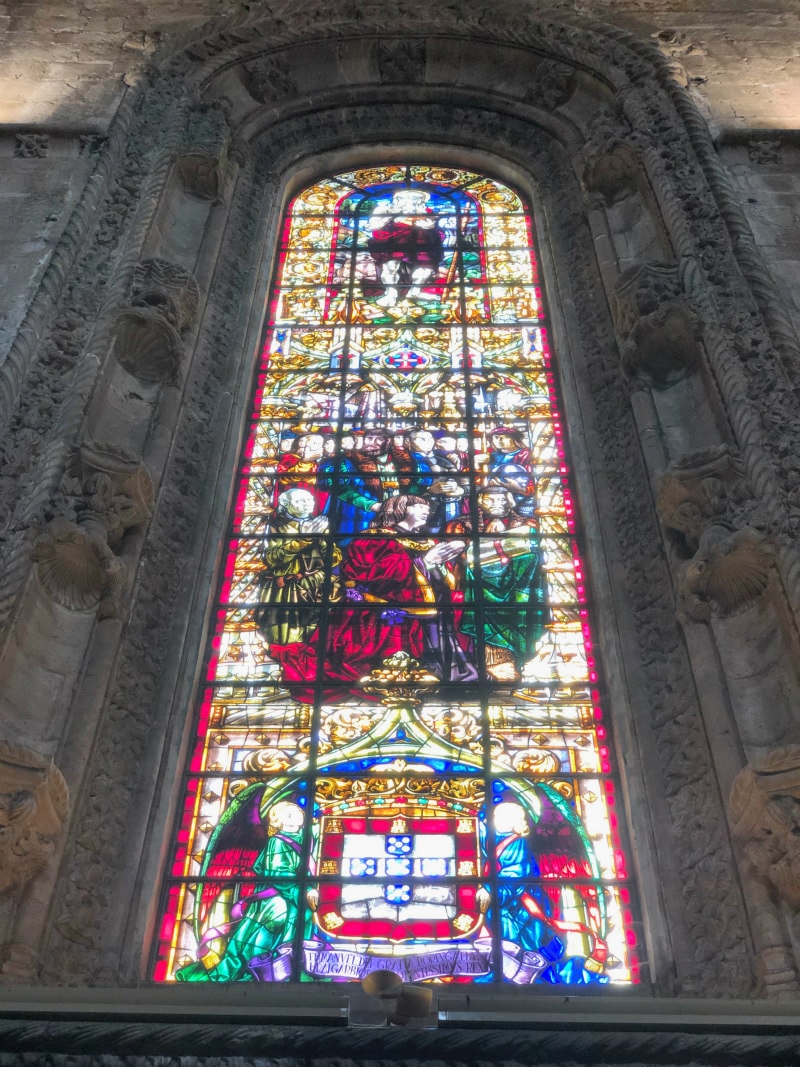
I’m pretty sure we were able to get into the monastery free with our Lisbon card.
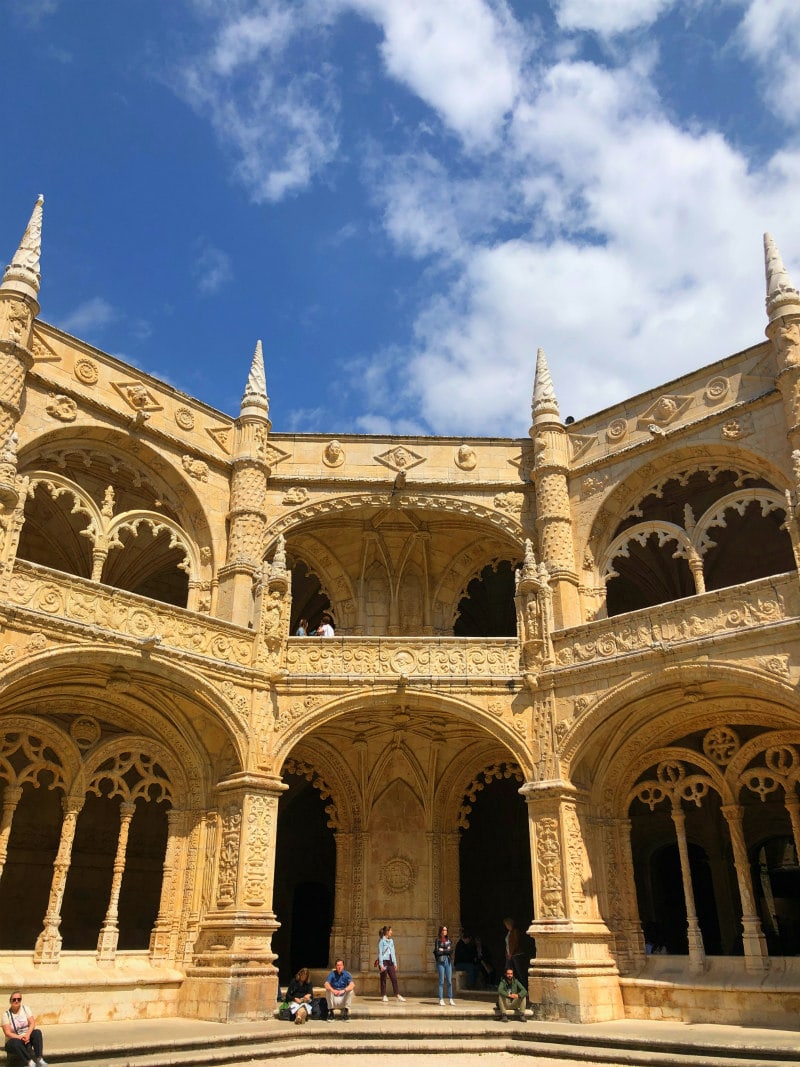
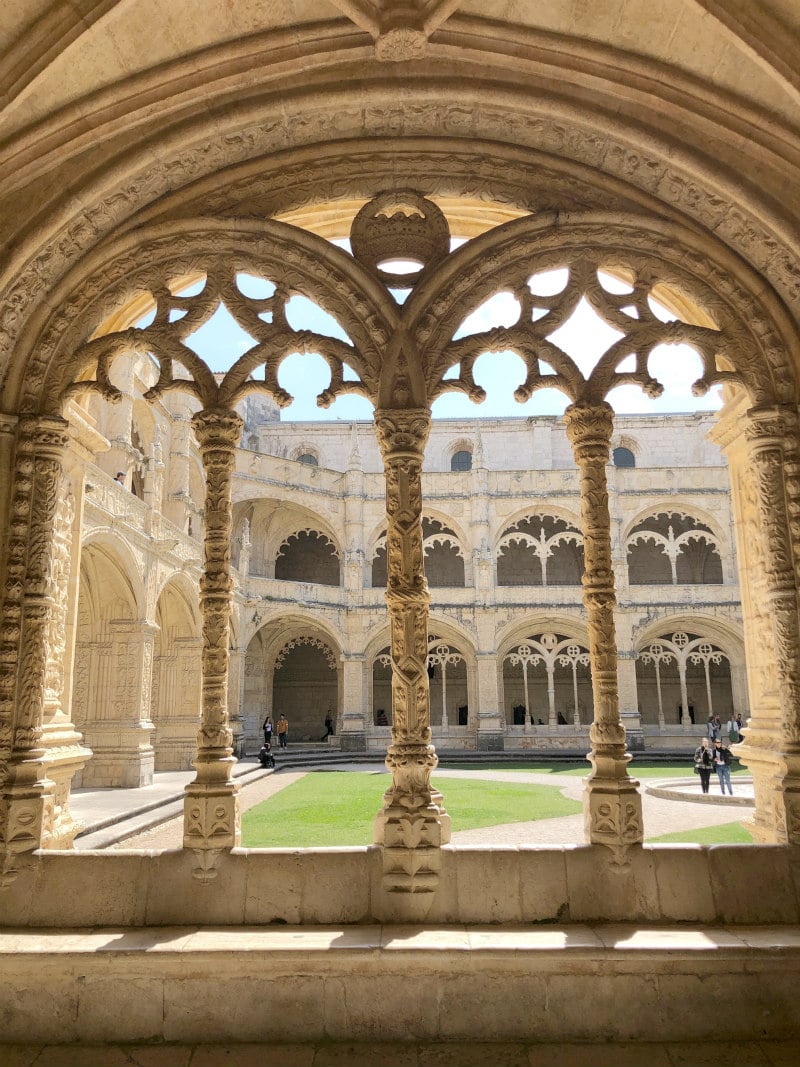
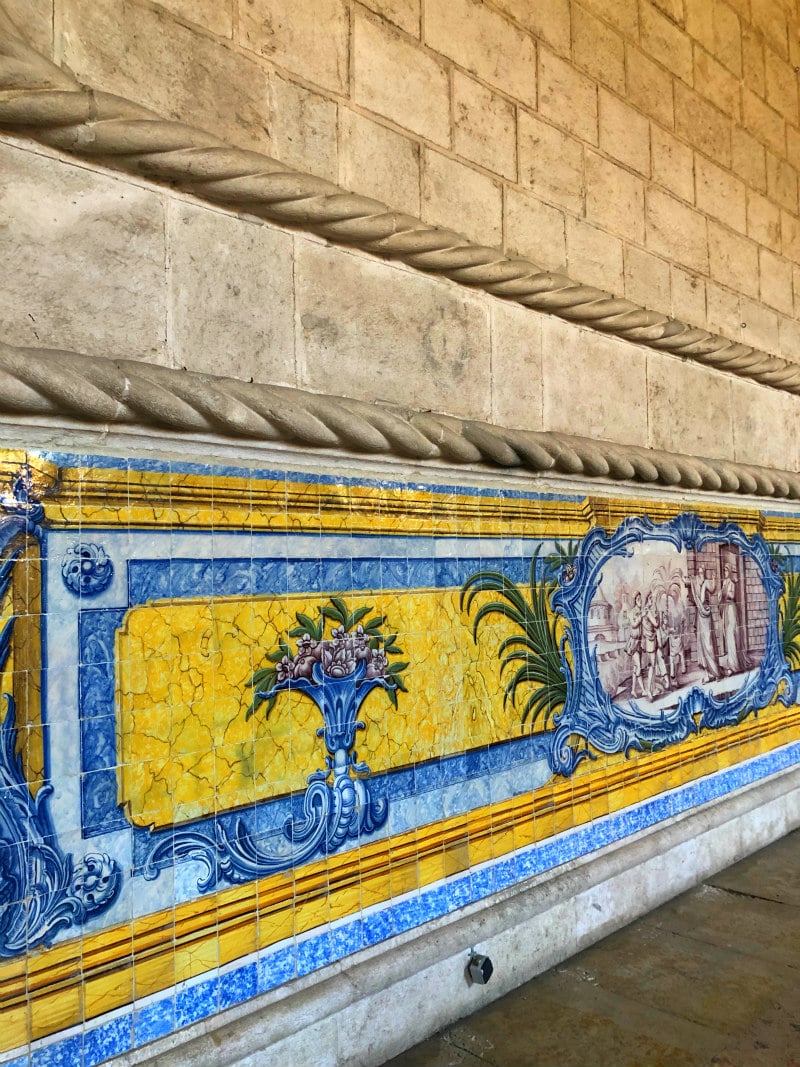
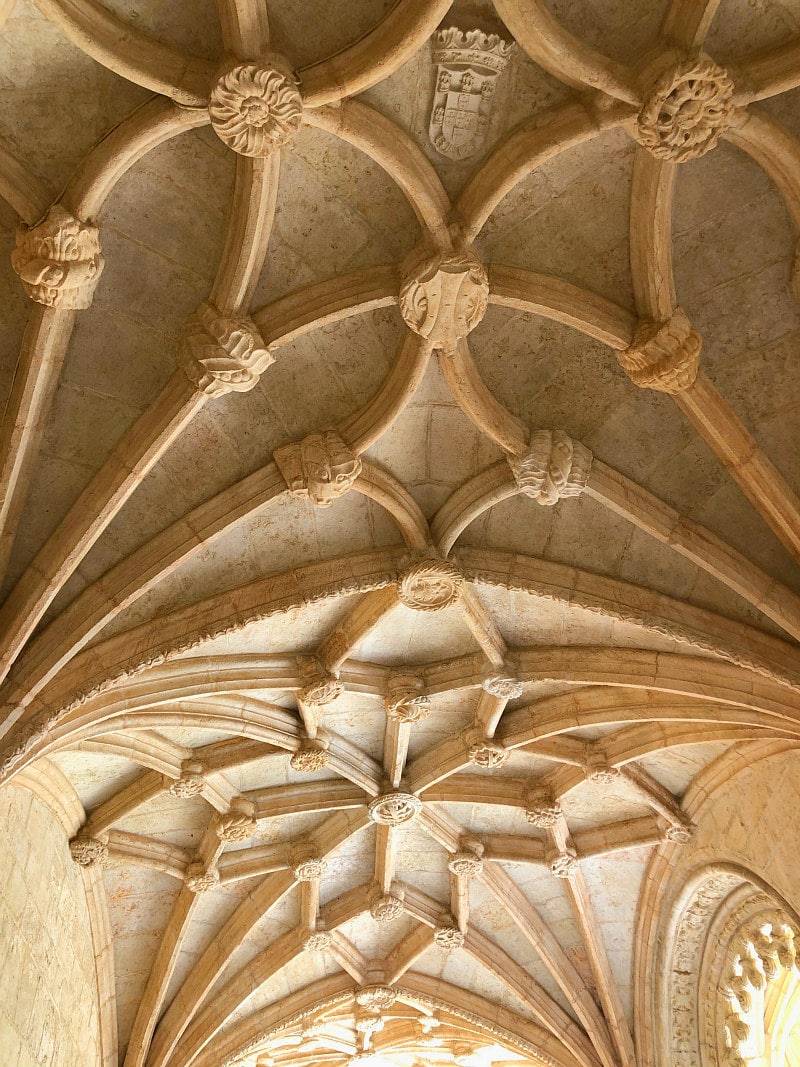
Don’t miss touring the cloisters in the monastery. There are some really unique architectural designs. The cloisters were a serene place for the monks to conduct prayer and meditation.
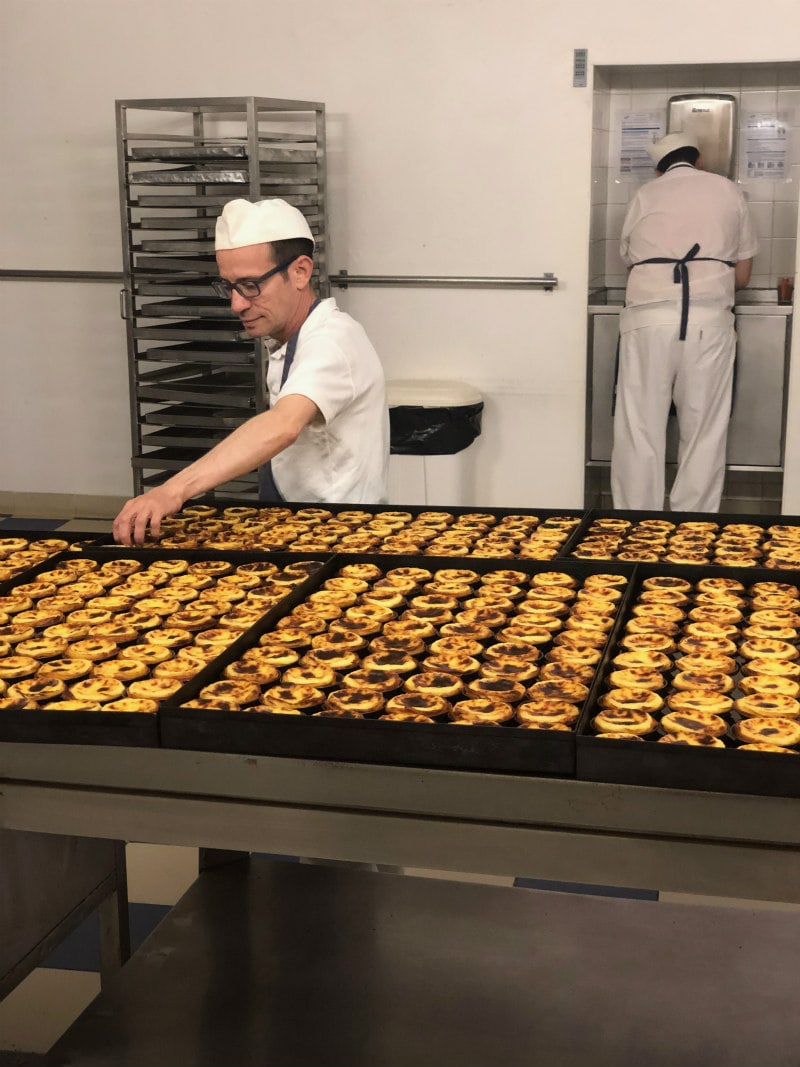
And finally… you MUST visit the Pastéis de Belém bakery before you leave this area!

Pastéis de Belém is home to (what they say is) the original Pastéis de Belém (Portuguese Custard Tart). They claim to have a secret recipe that has been well-guarded for a number of years! I tried quite a few pastries at this bakery, and I didn’t care for any of them EXCEPT this tart. They were definitely delicious. You can take home a little sleeve of tarts as a souvenir to share with others, if you’d like!
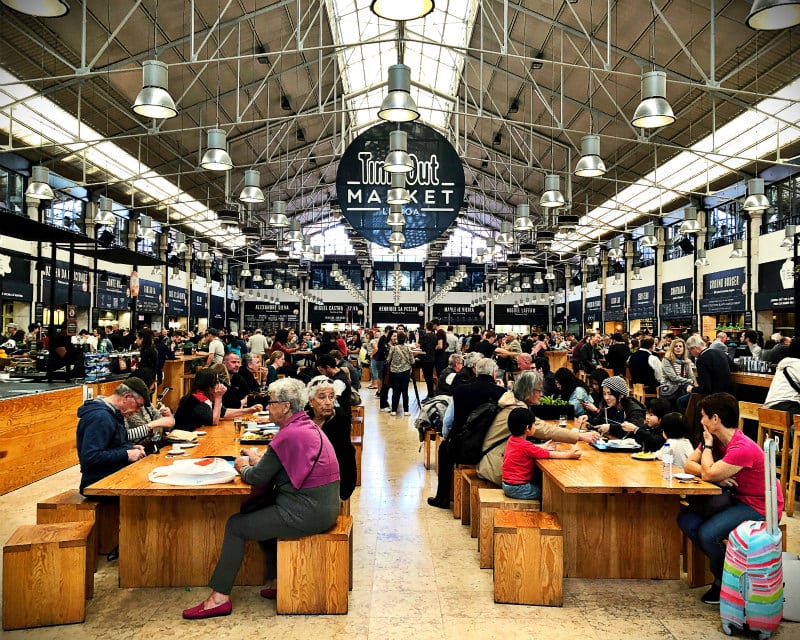
The Time Out Market is worth a visit too. It’s a big food court with all kinds of ethnic food choices.
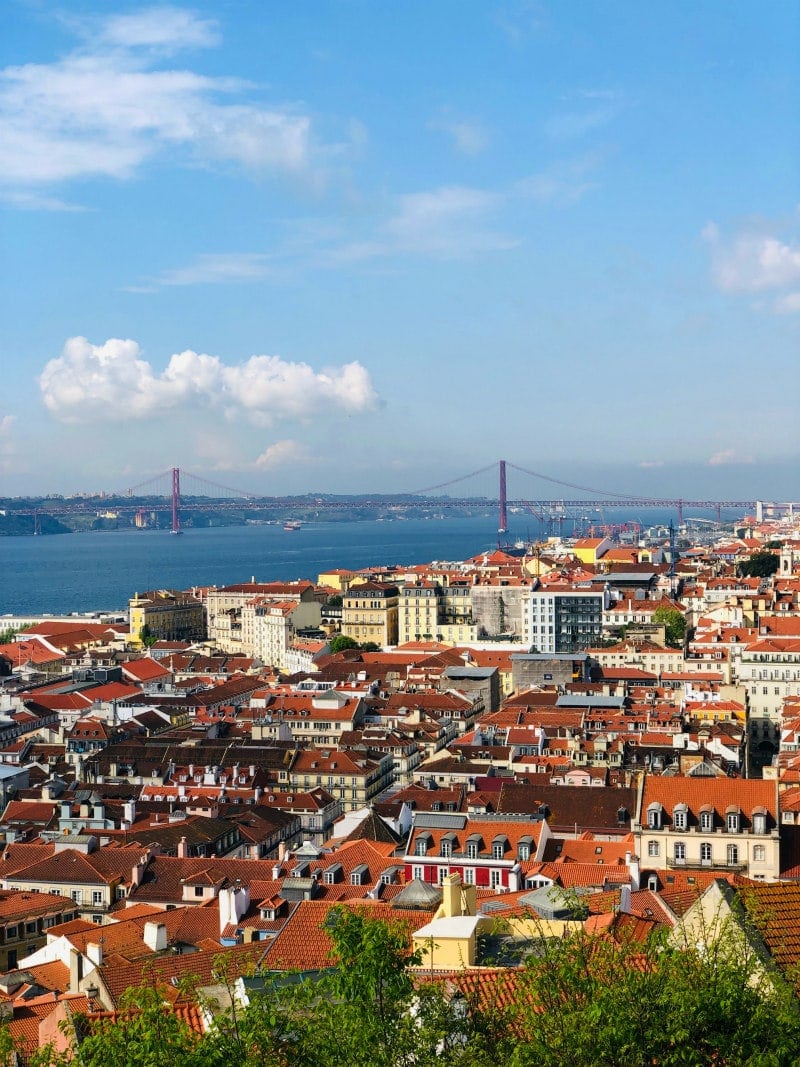
Goodbye Lisbon. Goodbye Portugal! Our road trip through Portugal was exciting, fun, interesting and very worthwhile!
Tips for traveling to Portugal/Europe and/or planning a road trip:
- Do your homework on where you’re going. Research cities and find the best sights to see and recommendations for restaurants too. Print out your findings and bring them with you.
- If staying in a city for a couple of nights or more, be sure to compare renting an apartment through VRBO or AIRBNB to a hotel. Sometimes renting an apartment is much cheaper, and you may have access to a washer/dryer too!
- Check out your cell phone plan before you go. Make sure you get a temporary plan where you’re going to have coverage. You’ll want to have access to Google Maps, and you want to make sure you are on the best plan for being out of the country.
- If you know there are certain sites and museums that you want to visit in Europe, check online for ticket rules. Some places are so popular that you’ll need to get a ticket a week or so ahead of time. Look around for discounts! And I fully recommend that you pay extra if “skip the line” is offered. You don’t want to wait in long lines when you’re on vacation!
- Check with your bank to see if you can get some Euros exchanged before you head to Europe. Some banks will do it for you without charging you a fee. It’s easy enough to hit an ATM when you get to Europe (where you’ll be charged a fee), but if you can at least get SOME before you leave then do that!
- When you pay for something in Europe by credit card, some places will ask you if you want to pay in Euros or USD. Tell them Euros! You’ll be charged a fee if they do the transaction in USD.
- Try to use a credit card in Europe that does not charge you a fee for international transactions (like Capital One).
- Don’t bring a traditional purse to carry your money, etc. I used a fanny pack, and that was perfect. They also make secure cross-body bags for traveling that have metal within the padded straps– making it impossible for crooks to cut the strap and steal it.
- Leave your passport in a safe place in your hotel room (don’t bring it with you when walking around the city). Keep a copy of your passport in a separate place- just in case it gets lost or stolen.
- If you’re a shopper who plans to spend more than 175 Euro on a single purchase, then you WILL need to bring your passport with you to take advantage of getting the VAT refund discount. This can save you a lot of money if you plan to do some heavy shopping!
- Be careful in crowded places- pickpocketers are everywhere and they just look like normal people. Don’t put your phone in your back pocket. Don’t leave your purse on your chair or the ground while eating in a restaurant. Be aware of your surroundings.
- If you rent a car in Europe, be sure to find out from the rental car agency what type of gas you will need to fill the tank.
- If you’re on a road trip, it’s helpful if you have one person as the driver and one person designated as the navigator. We found Google Maps to be quite helpful, accurate and easy to use for the roads in Portugal.
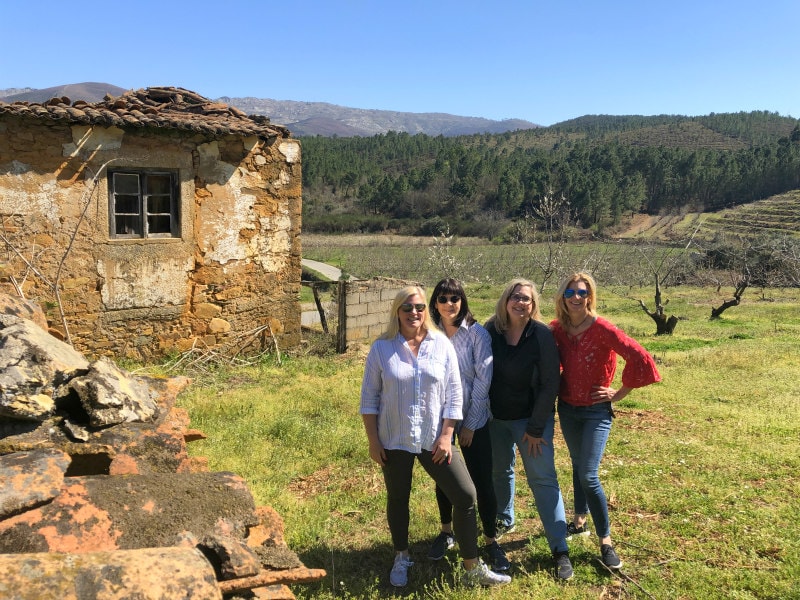
We’ve all decided we’d like to go back and visit Portugal again, and maybe we’ll hit the beach cities on the southern coast next time!
If you are interested in learning more about my complete Road Trip in Portugal, read these posts:
- Road Trip in Portugal: Óbidos and Aveiro
- Road Trip in Portugal: Porto and Braga
- Road Trip in Portugal: Lamego, Guarda and Sortelha
- Road Trip in Portugal: Monsanto
- Road Trip in Portugal: Castelejo, Piódão and Coimbra

The post Road Trip in Portugal: Lisbon appeared first on Recipe Girl®.

0 comments